
Kleinbasel: The Vibrant Heart of Basel
Nestled along the banks of the Rhine River, Kleinbasel is a lively and eclectic neighborhood that offers a unique blend of history, culture, and modernity. Known for its vibrant street life and diverse cultural scene, Kleinbasel is the place where the old meets the new, creating an atmosphere that is both charming and dynamic. Stroll through the cobbled streets and discover a mix of traditional Swiss architecture and contemporary art installations. The area is home to an array of boutique shops, cozy cafes, and trendy bars, making it a perfect spot for both shopping and relaxation. Don't miss the bustling Marktplatz, where you can sample local delicacies and fresh produce. Kleinbasel is also a hub for cultural events and festivals. Throughout the year, you can experience everything from open-air concerts to street parades, offering a taste of local life and community spirit. The neighborhood's proximity to the Rhine also provides opportunities for scenic river walks and boat tours, giving visitors a unique perspective of Basel's beautiful skyline.
Local tips in Kleinbasel
- Visit the Marktplatz early in the morning to enjoy fresh produce and local delicacies.
- Take a walk along the Rhine River for stunning views and a refreshing atmosphere.
- Check local listings for cultural events and festivals happening during your stay.
- Explore the side streets for hidden gems like boutique shops and cozy cafes.
Kleinbasel: The Vibrant Heart of Basel
Nestled along the banks of the Rhine River, Kleinbasel is a lively and eclectic neighborhood that offers a unique blend of history, culture, and modernity. Known for its vibrant street life and diverse cultural scene, Kleinbasel is the place where the old meets the new, creating an atmosphere that is both charming and dynamic. Stroll through the cobbled streets and discover a mix of traditional Swiss architecture and contemporary art installations. The area is home to an array of boutique shops, cozy cafes, and trendy bars, making it a perfect spot for both shopping and relaxation. Don't miss the bustling Marktplatz, where you can sample local delicacies and fresh produce. Kleinbasel is also a hub for cultural events and festivals. Throughout the year, you can experience everything from open-air concerts to street parades, offering a taste of local life and community spirit. The neighborhood's proximity to the Rhine also provides opportunities for scenic river walks and boat tours, giving visitors a unique perspective of Basel's beautiful skyline.
Iconic landmarks you can’t miss
Basler Münster
Discover the stunning Gothic architecture and rich history of Basler Münster, Basel's iconic cathedral and a must-visit tourist attraction.
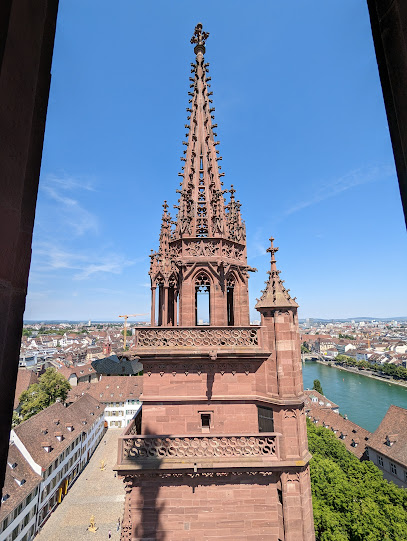
Mittlere Brücke
Explore the Mittlere Brücke in Basel, a historic bridge offering stunning views and a glimpse into the city's rich heritage and vibrant culture.
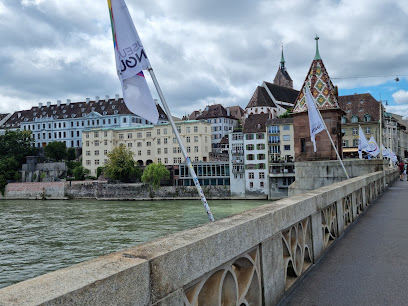
Spalentor
Discover the enchanting Spalentor, a historical landmark in Basel that showcases medieval architecture and rich cultural heritage surrounded by picturesque gardens.
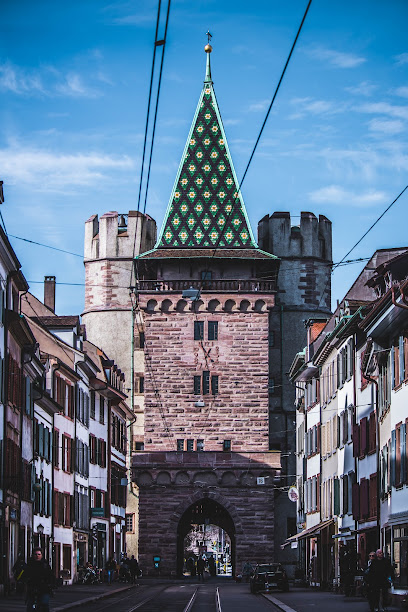
Basler Pfalz
Discover the breathtaking views from Basler Pfalz, an iconic observation deck in Basel, Switzerland, showcasing the city's vibrant architecture and the serene Rhine River.
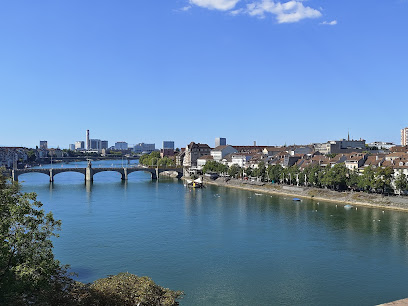
Minster Cathedral Square
Immerse yourself in the history and beauty of Minster Cathedral Square, the iconic heart of Basel with its stunning Gothic architecture and vibrant local culture.
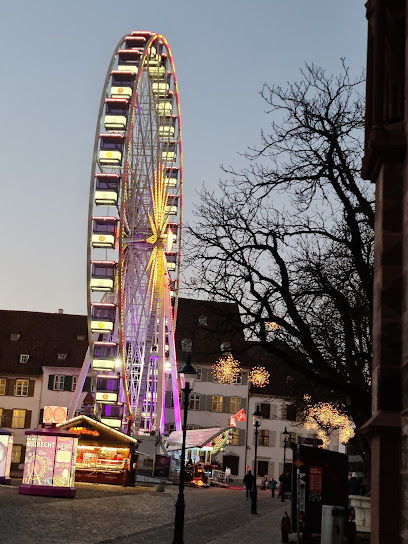
St. Johanns-Tor
Explore the stunning St. Johanns-Tor, a historic gateway in Basel that beautifully bridges the city's rich medieval past with its vibrant present.
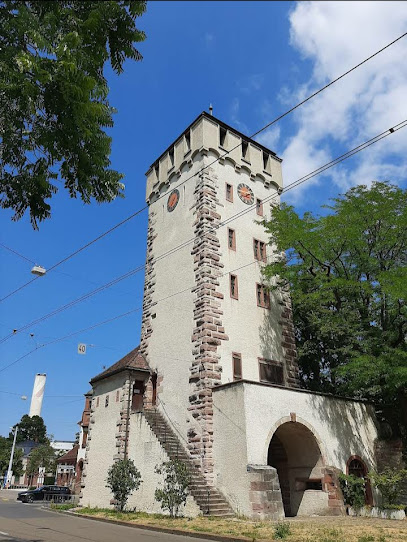
Viewpoint Altstadt Kleinbasel
Explore the enchanting views of Altstadt Kleinbasel, a scenic gem in the heart of Basel's historic old town, perfect for memorable moments and stunning photography.
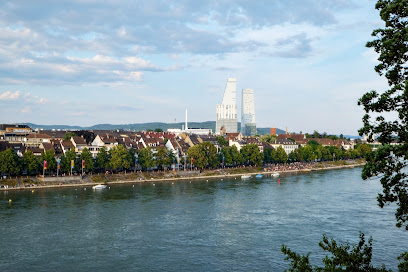
Promenade Unterer Rheinweg
Discover the picturesque Promenade Unterer Rheinweg in Basel—a serene riverside walk filled with stunning views, art, and local culture.
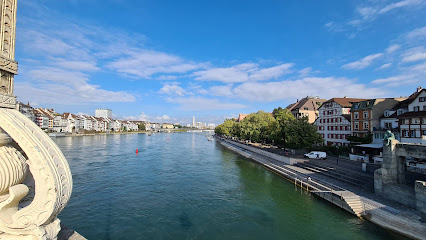
Kleinbasel Altstadt
Explore Kleinbasel Altstadt, a historical gem in Basel, Switzerland, rich in culture, charming architecture, and stunning views of the Rhine River.
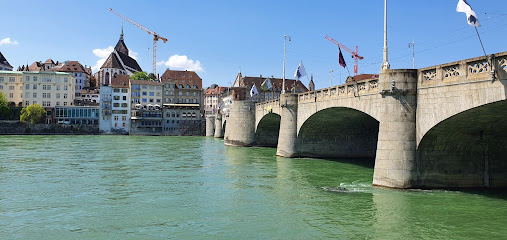
Basilia: Basiliskenstatue auf der Terrasse vor dem Hotel Basilisl
Discover the Basilisk Statue in Basel, a historical landmark that showcases the city's rich folklore and offers breathtaking views.
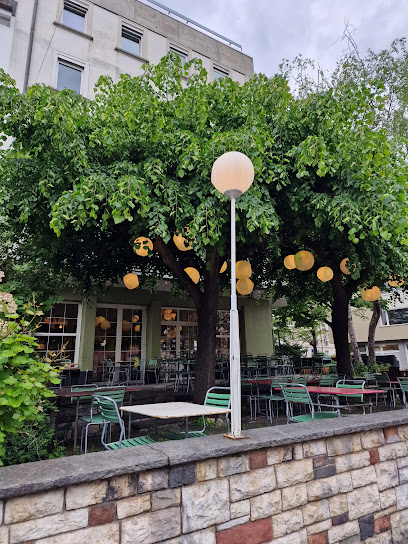
Unmissable attractions to see
Basel Paper Mill
Explore the fascinating history of papermaking at the Basel Paper Mill Museum, where art meets tradition in a picturesque setting.
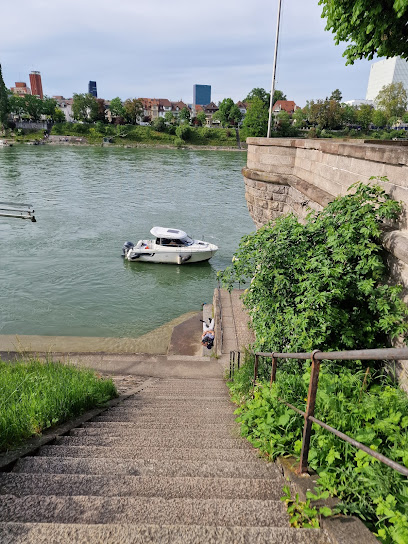
Promenade Unterer Rheinweg
Discover the beauty of Basel along the Promenade Unterer Rheinweg, where scenic riverside views meet vibrant local culture.
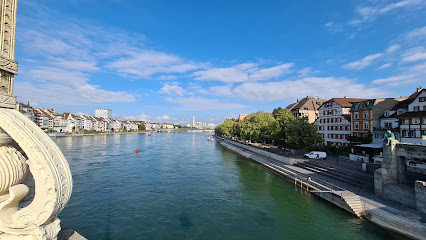
Basiliskenbrunnen am Rhein beim Referenzgässlein
Immerse yourself in the serene beauty of Basiliskenbrunnen, a stunning fountain along the Rhine River in Basel, Switzerland, perfect for relaxation and exploration.
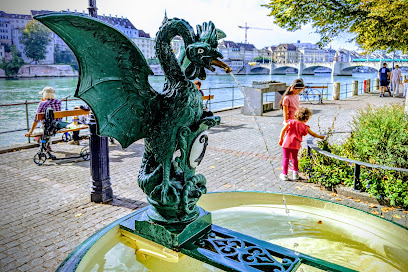
Basilia: Basiliskenstatue auf der Terrasse vor dem Hotel Basilisl
Explore the Basiliskenstatue at Hotel Basilisl in Basel, where history and art come together in a beautiful terrace setting.
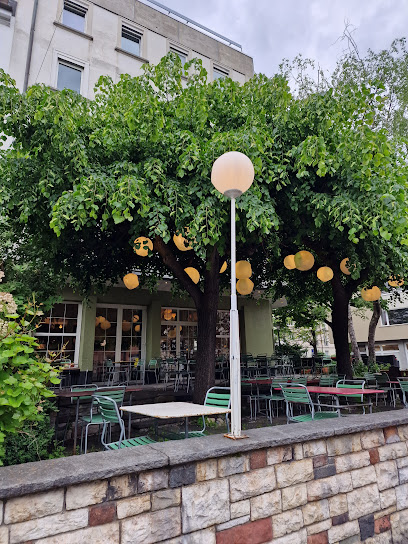
Essential places to dine
Restaurant Union
Discover the vibrant flavors of Basel at Restaurant Union - where gourmet burgers meet a lively bar atmosphere in the heart of the city.
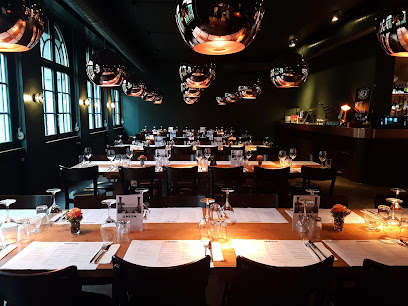
Schlüsselzunft
Discover the finest Swiss cuisine at Schlüsselzunft in Basel, where tradition meets contemporary dining excellence.
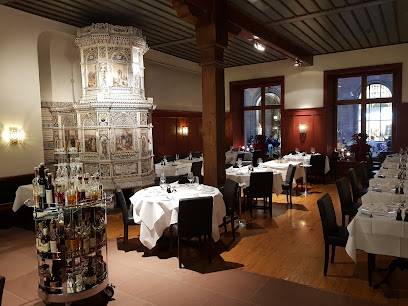
Ufer7 Basel
Savor exquisite Swiss cuisine at Ufer7 Basel, where contemporary dining meets stunning riverside views for an unforgettable culinary experience.
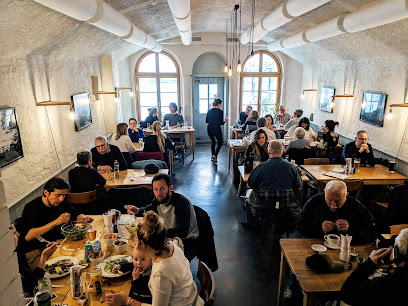
Zum schiefen Eck
Discover authentic Swiss cuisine at Zum schiefen Eck in Basel, where every dish tells a story and every meal is an experience.
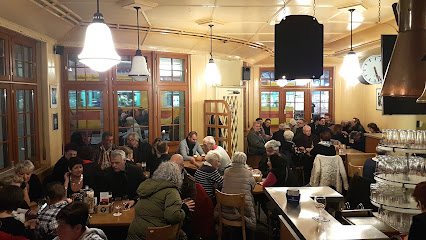
Restaurant Rhywyera
Discover authentic Swiss flavors at Restaurant Rhywyera along the beautiful Rhine River in Basel.
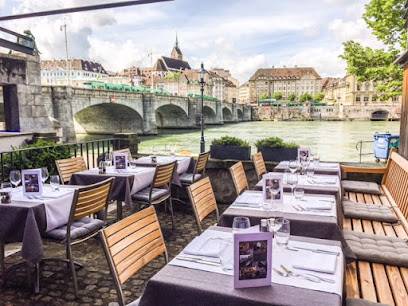
Adler
Savor authentic Swiss cuisine at Adler in Basel - where tradition meets taste in a cozy atmosphere.
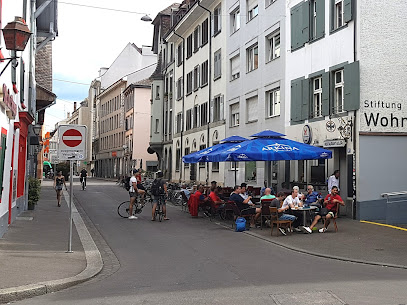
Roter Bären | Gourmet Restaurant & Bar
Experience exquisite modern European cuisine at Roter Bären, Basel's premier gourmet restaurant & bar offering delightful culinary artistry.
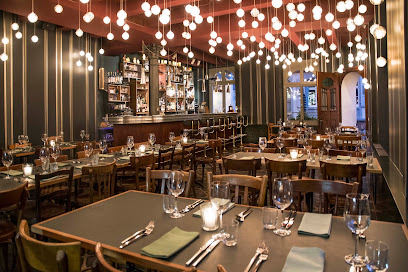
L'Unique | House of Rock
Discover the perfect blend of Italian cuisine, vibrant live rock music, and contemporary art at L'Unique in Basel.
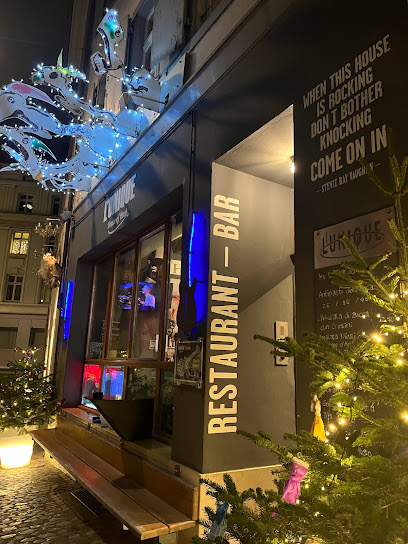
Restaurant Krafft Basel
Experience exquisite Swiss cuisine with breathtaking Rhine views at Restaurant Krafft Basel - a must-visit culinary destination.
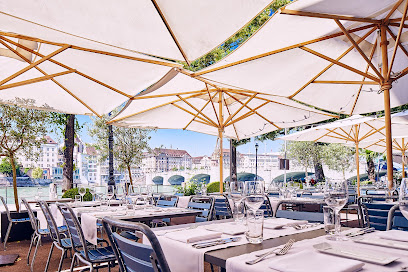
Gatto Nero
Savor authentic Italian cuisine at Gatto Nero in Basel – where every meal is a delightful journey through Italy's culinary heritage.
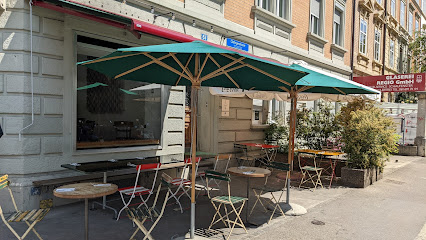
Markets, malls and hidden boutiques
MANOR Basel
Explore MANOR Basel, a premier department store offering clothing, home goods, and unique finds in the heart of Switzerland's cultural hub.
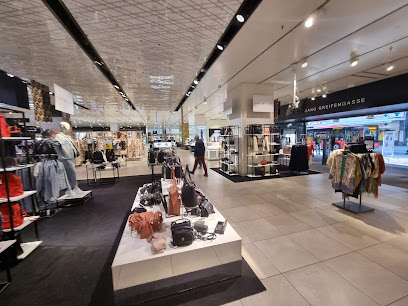
Flying Tiger Copenhagen
Explore the whimsical world of Flying Tiger Copenhagen in Basel, where creativity meets affordability in a delightful shopping experience.
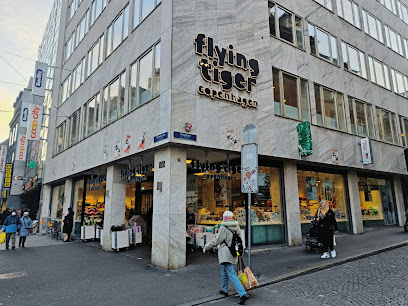
Metro Boutique Basel
Explore Metro Boutique Basel for an exquisite selection of fashion-forward clothing and accessories for the entire family in the heart of Basel.
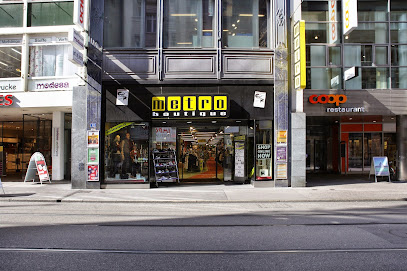
Tonja Conceptstore
Explore the charm of Basel at Tonja Conceptstore - your go-to boutique for gifts, clothing, and fashion accessories.
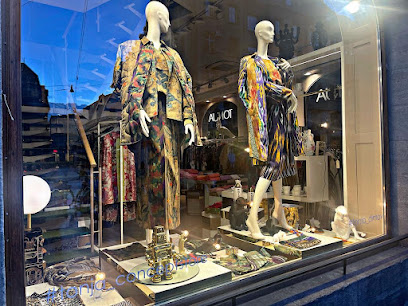
FAIRFOOT
Discover FAIRFOOT in Basel: Where Fair Trade Meets Health and Beauty for a Sustainable Shopping Experience.
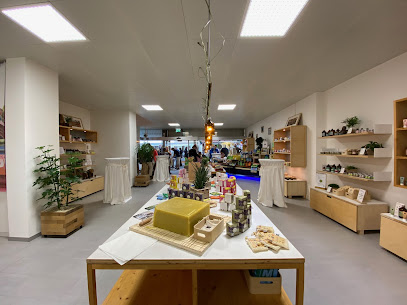
AHOI AHOI Conscious Concept Store
Explore AHOI AHOI in Basel for a unique shopping experience focused on sustainability and ethical products, perfect for conscious travelers.
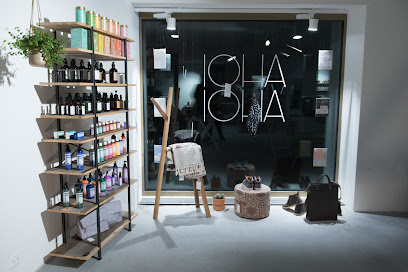
Ooid Store
Explore Ooid Store in Basel for a unique shopping experience with curated fashion, accessories, and local artisan treasures.
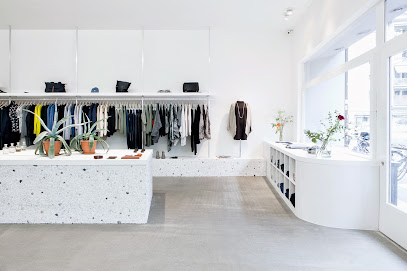
OBJET FIER - CONCEPT STORE
Explore OBJET FIER in Basel for unique gifts, vintage clothing, and sustainable treasures in a charming shopping environment.
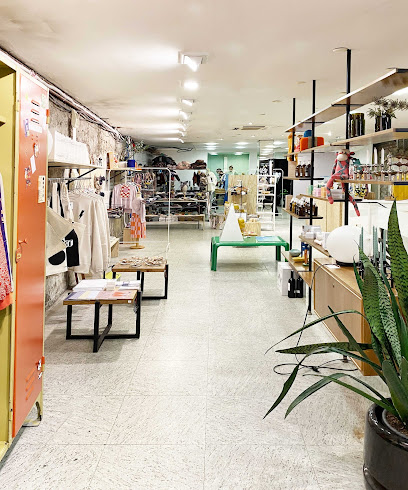
dream vintage collective
Explore timeless fashion at Dream Vintage Collective, where every piece tells a unique story and vintage charm meets modern style.
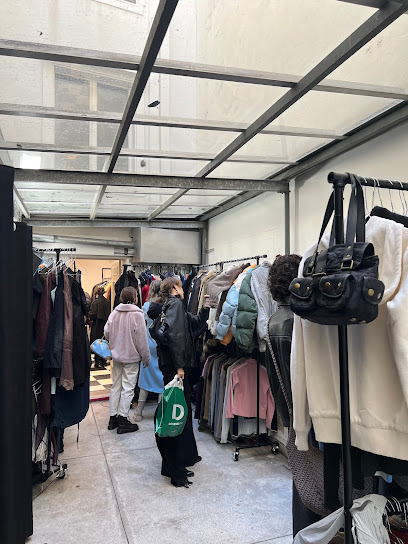
THREE Shop Basel
Explore trendy clothing and unique designs at THREE Shop Basel, a premier destination for fashion lovers in Switzerland's vibrant city.
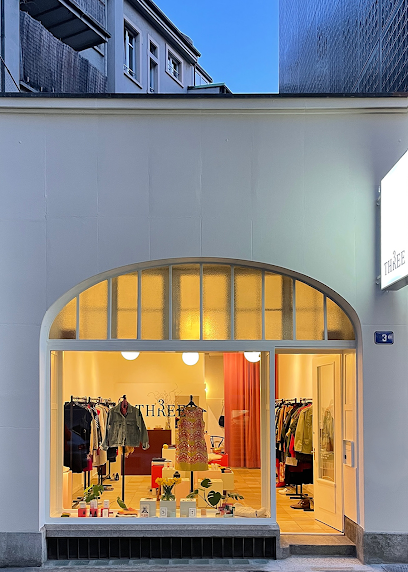
Essential bars & hidden hideouts
8 Bar
Discover Basel's vibrant nightlife at 8 Bar, where DJ beats and great drinks create unforgettable experiences for all party lovers.
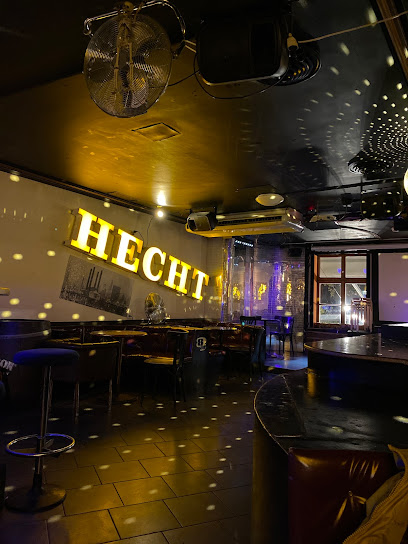
Irrsinn Bar
Experience the vibrant nightlife of Basel at Irrsinn Bar, where innovative cocktails and an inviting atmosphere create unforgettable moments.
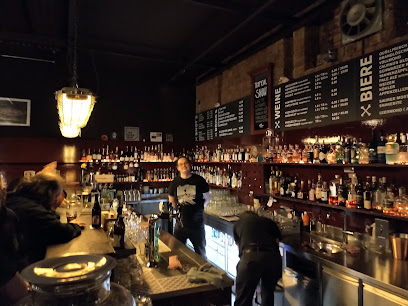
Amber Bar
Discover the lively atmosphere of Amber Bar, Basel's premier live music venue, where unforgettable nights and great performances await.
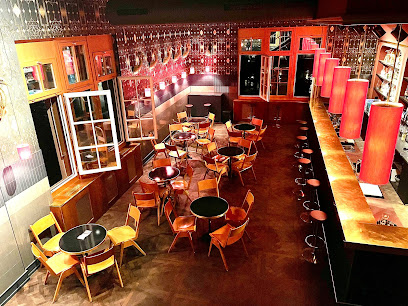
Grenzwert Bar
Discover Grenzwert Bar in Basel, a lively spot for cocktails and camaraderie, perfect for unwinding after a day of exploration.
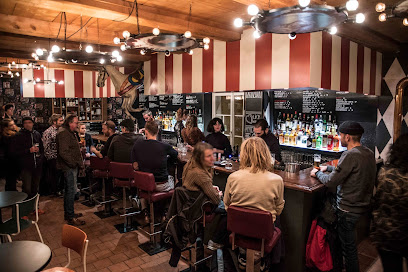
L'Unique | House of Rock
Experience the fusion of Italian cuisine and live rock music at L'Unique | House of Rock in Basel, where every visit is a celebration of art and flavor.
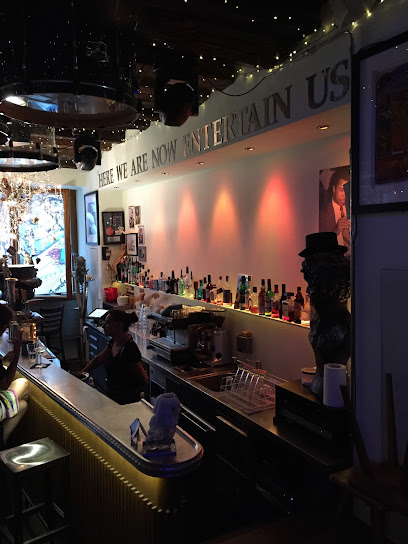
Schall und Rauch Bar
Experience the vibrant nightlife of Basel at Schall und Rauch Bar, where delicious drinks meet lively entertainment in a unique atmosphere.
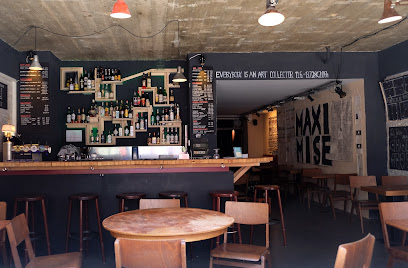
Blaupause - Cocktailbar
Experience the vibrant nightlife of Basel at Blaupause, a cocktail bar offering creative drinks and an enchanting atmosphere for every occasion.
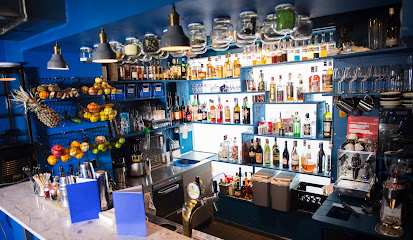
Friends Bar
Experience the vibrant nightlife of Basel at Friends Bar, where good drinks and great company await you in a lively atmosphere.
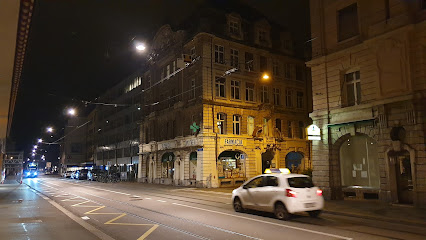
White Horse Bar
Discover the lively spirit of White Horse Bar in Basel, where vibrant nightlife meets local culture in an inviting atmosphere.
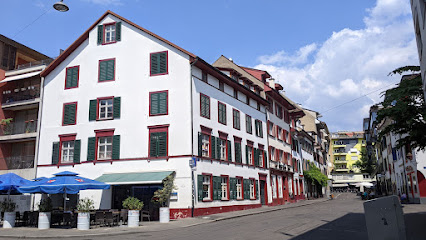
Sommerbar
Discover Sommerbar, Basel's vibrant outdoor bar offering creative cocktails and a lively atmosphere perfect for relaxation and socializing.
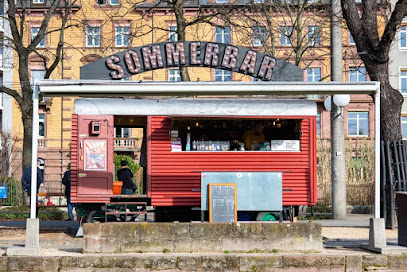
Local Phrases
-
- HelloGrüezi
[ɡryətsi] - GoodbyeAdieu
[adø] - YesJa
[ja] - NoNei
[nai] - Please/You're welcomeBitte
[ˈbɪtə] - Thank youMerci
[mɛrˈsi] - Excuse me/SorryEntschuldigung
[ɛntˈʃʊldɪɡʊŋ] - How are you?Wie goht's?
[vi ɡoːtʔs] - Fine. And you?Guet. Und dir?
[ɡʊət ʔʊnt diə] - Do you speak English?Redsch du Änglisch?
[rɛtʃ du ˈɛŋlɪʃ] - I don't understandI verstah nöd
[i fɛrˈʃtaː nœd]
- HelloGrüezi
-
- I'd like to see the menu, pleaseIch möcht gärn d'Menu luege, bitte
[ɪç møçt ɡærn də mɛnu lʊɡə ˈbɪtə] - I don't eat meatIch ässe kei Fleisch
[ɪç ˈɛsə kai flaɪʃ] - Cheers!Proscht!
[prɔʃt] - I would like to pay, pleaseIch möcht bitte zahle
[ɪç møçt ˈbɪtə ˈtsaːlə]
- I'd like to see the menu, pleaseIch möcht gärn d'Menu luege, bitte
-
- Help!Hüüf!
[ˈhyːf] - Go away!Gang weg!
[ɡaŋ wɛɡ] - Call the Police!Ruef d'Polizei!
[ryəf də poˈliːtsi] - Call a doctor!Ruef en Arzt!
[ryəf ɛn aʁts] - I'm lostIch ha mi verlore
[ɪç ha mi fɛrˈlɔrə] - I'm illIch bin chrank
[ɪç bɪn xræŋk]
- Help!Hüüf!
-
- I'd like to buy...Ich möcht ... kaufe
[ɪç møçt ... ˈkaʊfə] - I'm just lookingIch lueg nume
[ɪç luəɡ ˈnuːmə] - How much is it?Was chostet das?
[vas ˈxɔstət das] - That's too expensiveDas isch z' teuer
[das ɪʃ ts ˈtøːər] - Can you lower the price?Chasch du de Priis nöd mache?
[xaʃ du də priːs nœd ˈmaxə]
- I'd like to buy...Ich möcht ... kaufe
-
- What time is it?Wieviel isch's?
[ˈviːfiəl ɪʃs] - It's one o'clockEs isch eis
[ɛs ɪʃ aɪs] - Half past (10)Halbi (10)
[ˈhalbi (10)] - MorningMorge
[ˈmɔrɡə] - AfternoonNamittag
[ˈnamɪtaɡ] - EveningAbig
[ˈabiɡ] - YesterdayGestere
[ɡəˈʃtɛrə] - TodayHüt
[hyt] - TomorrowMorn
[mɔrn] - 1Eis
[aɪs] - 2Zwei
[tsvaɪ] - 3Drei
[draɪ] - 4Vier
[fiːər] - 5Fünf
[fʏnf] - 6Sex
[zɛks] - 7Siebe
[ˈziːbə] - 8Acht
[axt] - 9Nün
[nyːn] - 10Zähn
[tsɛːn]
- What time is it?Wieviel isch's?
-
- Where's a/the...?Wo isch en...?
[vo ɪʃ ɛn] - What's the address?Was isch d'Adresse?
[vas ɪʃ dadˈrɛsə] - Can you show me (on the map)?Chasch du mer zeige (uf em Plan)?
[xaʃ du mɛr ˈtsaiɡə (ʊf ɛm plan)] - When's the next (bus)?Wänn fahrt de nächste (Bus)?
[vɛn faːrt də ˈnɛkstə (bus)] - A ticket (to ....)E Billett (nach ....)
[e bɪˈlɛt (nax)]
- Where's a/the...?Wo isch en...?
History of Kleinbasel
-
Kleinbasel, located on the northern bank of the Rhine River, has its origins traced back to the Roman Empire, where it served as a trading post. The area began to develop significantly in the 12th century as a response to the growing trade routes along the river. Its proximity to the city of Basel made it an important hub for commerce, particularly in textiles and crafts, leading to the establishment of numerous workshops and markets.
-
One of the most significant events in the history of Kleinbasel was the Great Earthquake of 1356, which devastated much of Basel, including Kleinbasel. The earthquake caused extensive damage, prompting reconstruction efforts that would shape the architectural landscape of the neighborhood. The rebuilding phase introduced Gothic influences, which can still be observed in some of the surviving structures.
-
During the Reformation in the 16th century, Kleinbasel became a center for Protestant thought, influenced by the teachings of reformers like Ulrich Zwingli. This period saw the construction of various churches, including the notable St. Johanns Tor, which became a focal point for the Protestant community. The cultural landscape of Kleinbasel was enriched by the arts, education, and the establishment of printing houses.
-
The 19th century marked a transformative period for Kleinbasel, coinciding with the Industrial Revolution. The neighborhood experienced rapid urbanization, with factories and warehouses emerging along the Rhine. This industrial growth attracted a diverse population, resulting in a vibrant multicultural community. Innovations in transportation, such as the introduction of the steam ferry, further integrated Kleinbasel into the economic framework of Basel.
-
Following World War II, Kleinbasel underwent significant reconstruction due to damage from aerial bombings. The post-war era brought modernization, with the development of new residential complexes and urban infrastructure. Today, Kleinbasel is recognized for its blend of historical and modern elements, featuring cultural institutions such as the Kunstmuseum Basel and various galleries that celebrate contemporary art.
Kleinbasel Essentials
-
Kleinbasel is easily accessible from other neighbourhoods in Basel. If you're arriving at Basel SBB train station, you can take tram line 8 towards 'Riehen' or line 10 towards 'Dornach' to reach Kleinbasel in about 15 minutes. Additionally, local buses serve various routes connecting Kleinbasel to other parts of the city. If you are coming from the airport, take the EuroAirport shuttle bus to Basel SBB and then follow the tram instructions.
-
Kleinbasel is well-connected by public transport. The Basel tram network is efficient, and trams run frequently throughout the day. You can use tram lines 8 and 10 to navigate the neighbourhood. Bicycles can be rented through local bike-sharing services, which are a popular way to explore the area. Walking is also encouraged, as many attractions are within a short distance.
-
Kleinbasel is generally safe for tourists; however, it is advisable to remain vigilant, especially in crowded areas such as markets and public transport. While there are no specific high-crime areas noted, petty theft can occur. Avoid poorly lit streets at night and keep personal belongings secure.
-
In case of emergency, dial 112 for police, fire, or medical assistance. The nearest hospital is the University Hospital Basel. For non-emergency medical issues, pharmacies are widely available throughout Kleinbasel. It's wise to have travel insurance that covers emergencies.
-
Fashion: Do dress comfortably and appropriately for the weather, but avoid overly casual attire when dining out. Religion: Do respect local customs, especially in churches and religious sites. Public Transport: Do validate your ticket before boarding and keep noise to a minimum. Don't eat food or drink on trams or buses. Greetings: Do greet with a friendly 'Grüezi' (hello) and maintain eye contact. Eating & Drinking: Do try local cuisine, especially at traditional restaurants, and don't forget to try the local beers. Don't leave a tip unless you are particularly pleased with the service, as service charges are typically included.
-
To experience Kleinbasel like a local, visit the Markthalle for a vibrant food market scene and local delicacies. Engage with the community at the Kleinbasel Christmas Market if visiting in winter. Explore the hidden gems of the neighbourhood by wandering through its quaint streets and discovering small cafés and boutiques. Additionally, take a stroll along the Rhine River promenade for stunning views of the city.
Nearby Cities to Kleinbasel
-
Things To Do in Freiburg
-
Things To Do in Colmar
-
Things To Do in Bern
-
Things To Do in Zurich
-
Things To Do in Lucerne
-
Things To Do in Thun
-
Things To Do in Interlaken
-
Things To Do in Grindelwald
-
Things To Do in Strasbourg
-
Things To Do in Murren
-
Things To Do in Vevey
-
Things To Do in Montreux
-
Things To Do in Lausanne
-
Things To Do in Gamprin
-
Things To Do in Ruggell









